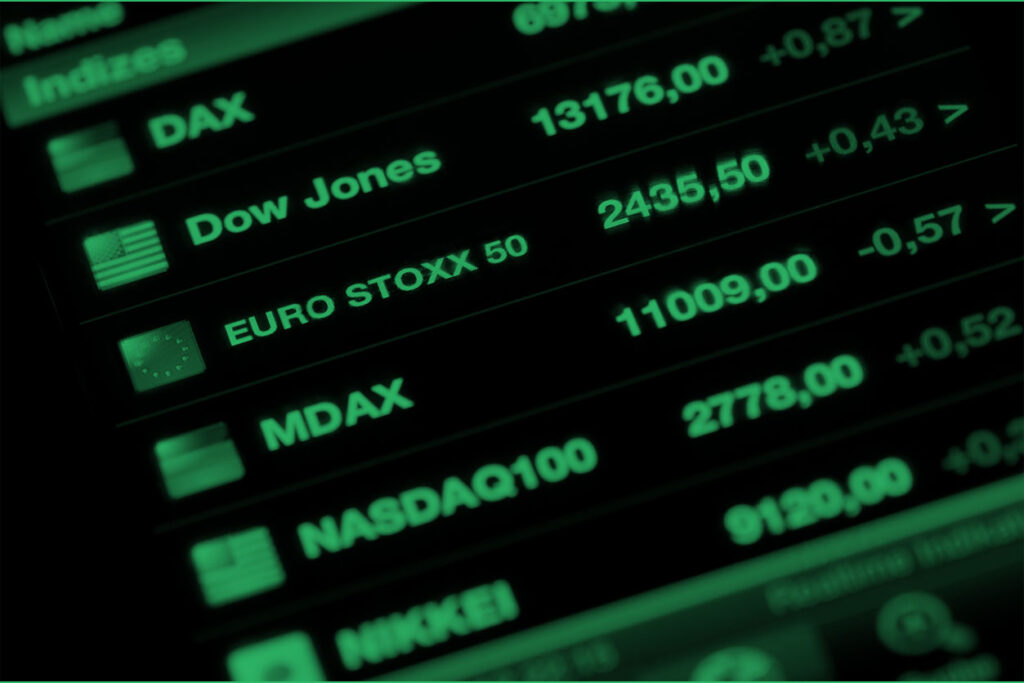What Drives Stock Market Indices?

What is a Stock Market Index?
If the individual share prices within the index rise then the Footsie will reflect the increase and also rise. Similarly, if the individual share price drops then the Footsie will also do the same. Stock Indexes provide investors and traders with an insight into the overall health of the country’s economy as well as providing an overview of how the exchange, regions and sectors are doing.
Here is an overview of the major stock indexes and the country they belong to:
| FTSE 100 | UK |
| DAX | Germany |
| CAC 40 | France |
| IBEX 35 | Spain |
| FTSE MIB | Italy |
| Nikkei 225 | Japan |
| Hang Seng | Hong Kong |
| ASX 200 | Australia |
| TSX 60 | Canada |
Why are traders interested in Stock Indices?
Investors and traders lean towards Stock Indices as they have the chance to profit from price movements. The price of the index is constantly fluctuating and so traders try to benefit from this. Indices can be traded via CFDs where the trader won’t have to own the underlying asset but can still speculate on the asset’s rising or falling prices. The trader will just need to place a relatively small deposit down, however, when trading CFDs both profits and losses can be magnified.
What drives the price of Stock Indices?
There are various external factors that all come into play when affecting the price performance of certain indexes in the financial markets.
If the market sentiment for a particular index was to buy rather than sell this would drive the price of the index. There are reasons around a bullish or bearish market sentiment which we are going to explore and explain in this guide.
GDP
The Gross Domestic Product is the total amount of services and goods produced within a country. This can include investments, exports and private and public consumption.
The GDP is data released to the public revealing the country’s economic health and by default can be a major influence on stock index prices. If the country’s economy is proven to be healthy then this will have a knock-on effect on businesses and consumer confidence.
Unemployment figures are another external factor which causes stock indices prices to shift and is one that traders follow very closely. The general notion is indices rise and fall in relation to low or high unemployment data reports.
Inflation
Inflation is the rise and fall in the price of good and services which then impacts the overall economy. There are different ways to measure inflation including Whole Price Index (WPI) and the Consumer Price Index (CPI), traders will consider this price change over the month and the year. Central Banks, Governments and Businesses will also follow inflation levels.
Central Banks, in particular, will try and control inflation levels by raising or cutting interest rates. Inflation is normally caused by demand. This is when consumers want one particular product or service and the level of demand overrides the supply and production. If businesses don’t increase the price of the product or service which is in high demand, then they are at risk of running out of supply.
There will be more time needed to increase costs for consumers. As a result, the relevant index price would suffer on the market.
High inflation could have a positive impact on encouraging employment growth. It could also have a negative impact on businesses that spend more on input costs as a result of high inflation which could then stop hiring processes. If any of the two things happen then the index price will also be affected both negatively and positively.
As a trader, you will want to keep an eye on items where the price is rising.
Interest Rates
The interest rate is the percentage you are charged on the overall total amount you borrow.
Central Banks also have the power to set the rate at which retail banks borrow and lend from each other. This will inevitably have a widespread impact on the country’s economy and in turn affect the stock market. It normally takes twelve months after an interest rate decision for it to impact the economy. Whereas, there is an immediate impact on the stock market after interest rate announcements.
If the interest rate increases then the company or business in question may have to cut back on growth which will cause a decrease in profits made. Therefore, the company’s estimated cash flow for the year could drop, which will lower the worth of the company and change the index it is part of.


